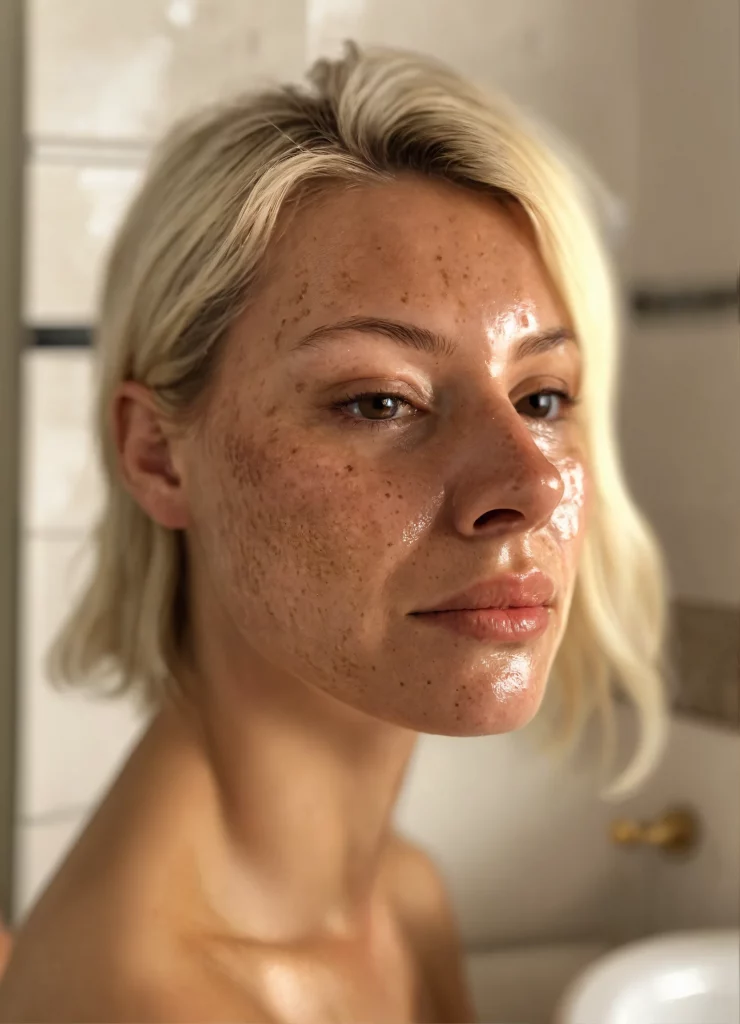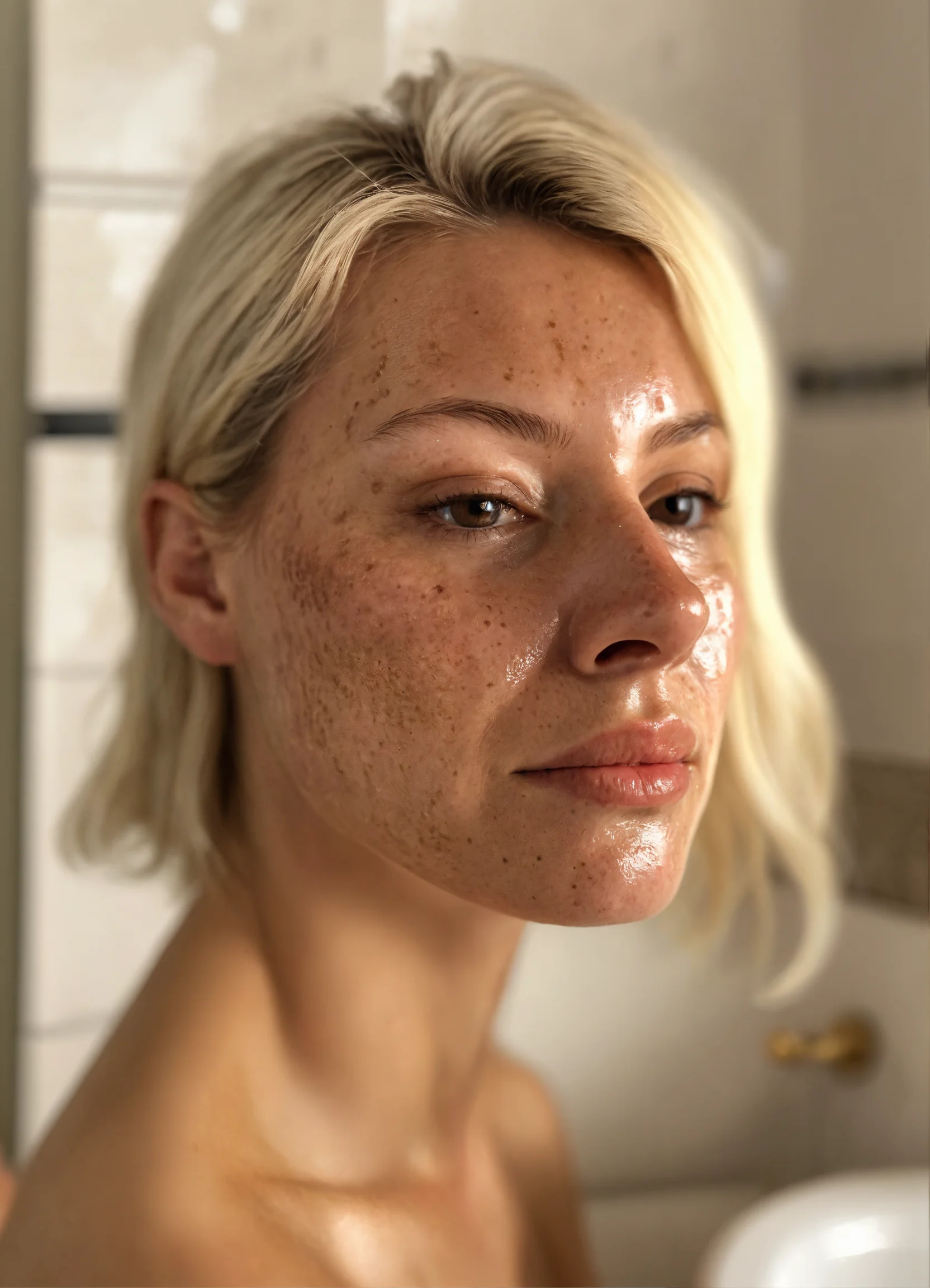
First of all, kudos to you for using sunscreen, but that’s not the main issue here. During pregnancy, hormone levels such as estrogen, progesterone, and melanocyte-stimulating hormone change in a woman’s body, increasing the risk of pigmentation. Unfortunately, this type of pigmentation is difficult to treat because melanocytes and melanin can penetrate the dermis. This means that the dark spot we see on the skin’s surface also exists in deeper layers (otherwise, exfoliating products alone could easily remove it). Therefore, we need to use cosmetics with brightening ingredients.

What ingredients should you look for?
- Kojic acid
Kojic acid is derived from fungi and is well-known for its skin-lightening properties. It inhibits melanin production, making it effective in treating hyperpigmentation, age spots, and sun damage. It also has antibacterial and antifungal properties, which can be beneficial for acne-prone skin.
- Tranexamic acid
Tranexamic acid is a synthetic derivative of the amino acid lysine. It’s primarily used to treat melasma and other forms of hyperpigmentation by inhibiting the activation of melanocytes. It also has anti-inflammatory properties and can help reduce redness and even out skin tone.
- Glycolic acid
Glycolic acid is an alpha hydroxy acid (AHA) derived from sugar cane. It is widely used for its exfoliating properties, which help remove dead skin cells, improve skin texture, and reduce the appearance of fine lines, wrinkles, and hyperpigmentation. It can also help with acne by keeping pores clear of debris.
- Vitamin C
Vitamin C is a powerful antioxidant known for its ability to brighten the skin, reduce the appearance of hyperpigmentation, and stimulate collagen production. It helps protect the skin from free radical damage caused by UV exposure and environmental pollutants.
- Niacinamide
Niacinamide, also known as vitamin B3, is a versatile skincare ingredient that offers multiple benefits. It helps improve skin barrier function, reduce inflammation, and minimize the appearance of pores. It’s also effective in treating hyperpigmentation, reducing fine lines and wrinkles, and improving overall skin tone and texture.
- Licorice extract
Licorice extract contains glabridin, which inhibits the enzyme tyrosinase, reducing melanin production. It’s effective in treating hyperpigmentation and brightening the skin. It also has anti-inflammatory properties, making it suitable for sensitive and irritated skin.
- Arbutin
Arbutin is a natural derivative of hydroquinone found in plants like bearberry. It helps to lighten and brighten the skin by inhibiting the enzyme tyrosinase, which is involved in melanin production. It’s used to treat hyperpigmentation, dark spots, and uneven skin tone without the irritation associated with hydroquinone.


Leave a Reply